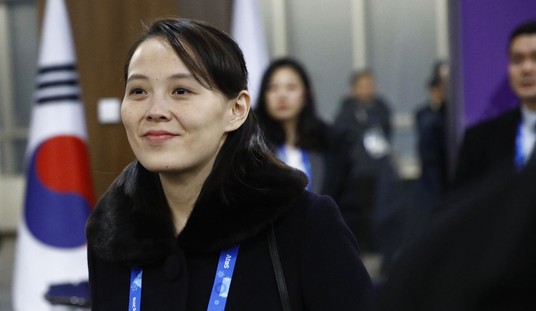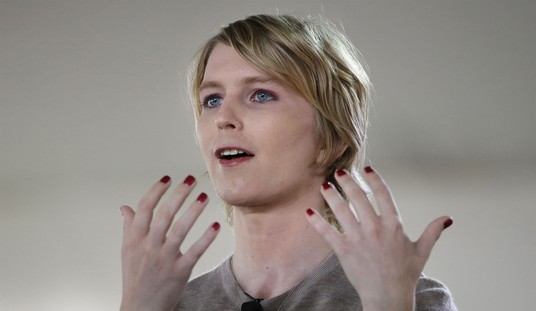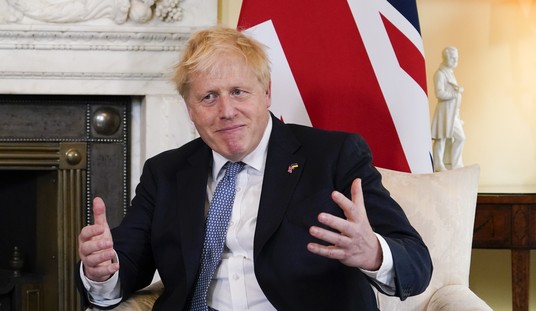Ironic Surrealism unearths a gem from 1990, when Barack Obama was a student at Harvard. In an interview with the Illinois Daily Herald, Obama laid down rhetoric that both he and his wife would strongly echo during their 2008 run for the presidency.
“There’s certainly racism here. There are certain burdens that are placed, more emotionally at this point than concretely,” Obama said.
“Professors may treat black students differently, sometimes by being, sort of, more dismissive, sometimes by being more, sort of, careful because they think, you know, they think that somehow we can’t cope in the classroom,” he said.
Obama sees the inner cities as the front lines of racism.
“It’s critical at this stage for people who want to see genuine change to focus locally. And it is crucial that we figure out how to rebuild the core of leadership and institutions in these communities,” he said.
For five years before law school, Obama took on that task in Chicago. As the director of a program that tried to bring South Side churches, unions and block associations together on projects, Obama was not trying to solve local problems, he said. Instead he sought to construct something more lasting — a forum for the community, “I’m interested in organizations, not movements, because movements dissipate and organizations don’t,” Obama said.
America suffered when the movements of the 1960s dissipated, he said. Those movements succeeded in raising doubts about harmful traditions of sexism and racism, but failed to offer a viable alternative.
“Hopefully, more and more people will begin to feel their story is somehow part of this larger story of how we’re going to reshape America in a way that is less mean-spirited and more generous,” Obama said.
“I mean, I really hope to be part of a transformation of this country.”And the future of black people and of America generally? “It depends on how good I do my job,” he said.
This is from May 1990. Obama had already ended his Chicago community organizer career to attend law school. Obama had just been elected president of the Harvard Law Review. But note his attitude toward his own professors at the very liberal university. He mind-reads them as racists without ever offering a shred of evidence that they were.
The “mean-spirited” line would work its way from Harvard to the national conversation when Michelle Obama told the New Yorker in 2008 that she believes America is a “downright mean” nation. And on the eve of his election, Barack Obama promised/threatened to carry out that “fundamental transformation” of America that first surfaces in the 1990 interview. His consistency in rhetoric and ideology over the years is remarkable.
I point both of those out on the way back to a rally at Harvard in 1991. That’s when Harvard Law Review president Barack Obama asked students to “open their hearts and minds” to the critical race theory ideas of Professor Derrick Bell. Obama was the Review’s first black president and was a big man on campus; he was influential and had cast himself as a figure of moderation and reconciliation. Professor Bell’s theory, boiled down to its essentials, is that racial reconciliation is impossible in the current American system of law. Critical race theory holds that American law is an inherently white power structure, and that as such, the only way to redeem it is to fundamentally overthrow it. It’s a quite radical theory. But the Obamas’ rhetoric and actions say loudly that both of them agree entirely with Bell’s critical race theory and they have not changed their minds over the years. They have long viewed America as “mean-spirited” and ungenerous. Obama hoped as early as 1990 to “transform” this “mean-spirited” country in favor of black people. Look again at the end of the article quote above. That’s what he says. Michelle Obama cast her lot with Derrick Bell and CRT when, in 1988, she occupied the Harvard Law School dean’s office supporting Bell and his demand for racial hiring at Harvard. Her heart and mind were already open to Professor Bell. In 1990 Obama was already on the same page with Bell, and in 1991 he called on others to “open your hearts, open your minds” to critical race theory.
Now let’s fast forward a few years, to 2001. Barack Obama has now left Harvard, returned to Chicago, and is a state senator. He gave an interview to WBEZ radio, and had some interesting things to say about the US Constitution.
OBAMA: [T]he Supreme Court never ventured into the issues of redistribution of wealth, and of more basic issues such as political and economic justice in society. To that extent, as radical as I think people try to characterize the Warren Court, it wasn’t that radical. It didn’t break free from the essential constraints that were placed by the founding fathers in the Constitution, at least as its been interpreted and Warren Court interpreted in the same way, that generally the Constitution is a charter of negative liberties. Says what the states can’t do to you. Says what the Federal government cant do to you, but doesn’t say what the Federal government or State government must do on your behalf, and that hasn’t shifted and one of the, I think, tragedies of the civil rights movement was, um, because the civil rights movement became so court focused I think there was a tendency to lose track of the political and community organizing and activities on the ground that are able to put together the actual coalition of powers through which you bring about redistributive change. In some ways we still suffer from that.
Obama foreshadows the line that would later get him in trouble while talking policy with Joe the Plumber — “spread the wealth around.” Obama is quite consistent on this point, even favoring changing tax policy “for purposes of fairness” regardless of its impact on the economy. In the clip above, he chides the Warren Court for failing to “break free” of the limits that the founders placed on the power of government. He calls for the Constitution to become, not a limit on government power as the founders designed it, but a vehicle to empower the state to, among other things, redistribute wealth.
What is Obama calling for here, but “fundamental transformation” through the overthrow of the US Constitution itself?









Join the conversation as a VIP Member